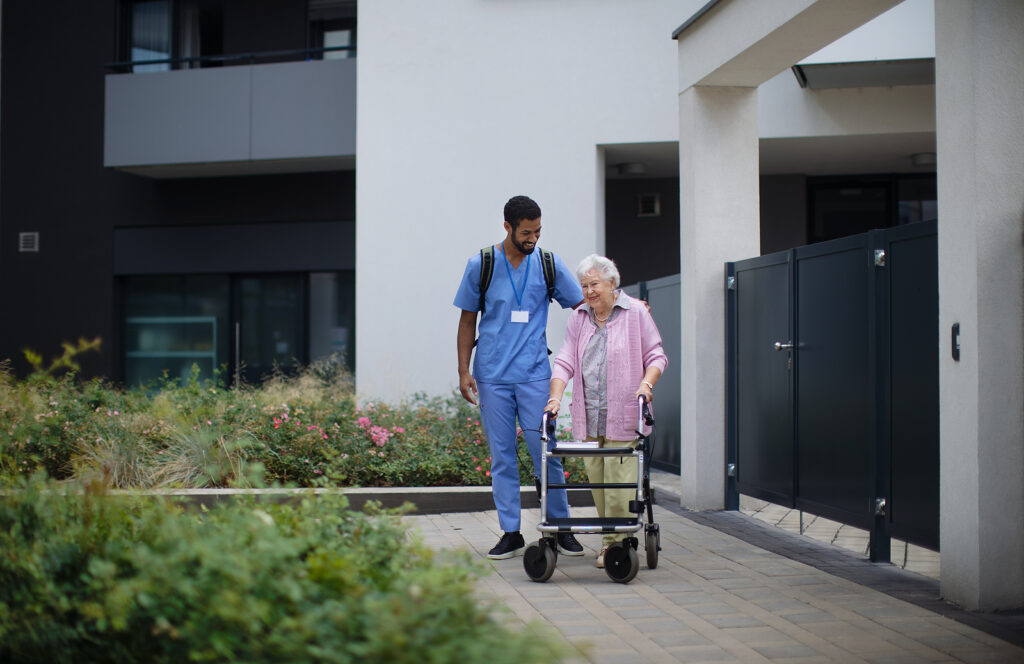
Following a hospitalization, there are many factors that impact recovery. The person’s age, their overall health prior to the hospitalization, the reason they were hospitalized, and much more. For example, an 86-year-old who had a stroke is going to face a much more challenging recovery than a 20-year-old who broke their ankle.
For people as they get older, recovery will be challenging, no doubt. Here are a few things to consider about your senior’s recovery from a hospital stay, and how in-home care can help:
What if recovery goes the wrong way?
Any person, regardless of their age, could end up back in the hospital if they don’t pay attention and do what their doctor has recommended. Sometimes, a hospital readmission is the result of unforeseen circumstances or complications. It may not have anything to do with what the patient did or didn’t do for their recovery.
In many cases, though, there’s a lot a person can do to promote a healthy and stable recovery that keeps them away from the hospital.
Why are we concerned about readmission risks?
Having to be readmitted to the hospital could mean an even longer and more difficult road to recovery. In fact, if the person was hospitalized because the pneumonia, for example, and they are in their 70s, if they have to be readmitted because the virus or bacteria reestablished itself, the antibiotics the doctors used the first time will no longer be effective.
That could make that second bout of pneumonia even more dangerous and the hospital stay even longer.
What should seniors do if recovery isn’t on track?
Only the person himself or herself will know whether they are truly on the right track to recovery. Of course, they might not know all of the details about what to expect, but their doctor or team of doctors will likely have given them plenty of information to begin the process.
If the senior isn’t quite sure how things are progressing, they should reach out to their doctor and find out. They should not wait too long and hope for the best. If something doesn’t feel right, if they don’t believe they’re on the right track, they should let their doctor know.
It could simply be that they are misinterpreting some of the signs or pains or discomforts that they feel. They may struggle with their physical abilities far more than they had before the hospitalization. If they were hospitalized for several weeks, for example, that could simply be the result of those muscles weakening.
It may take more physical therapy, more physical effort, more diligence and consistency on the part of the senior to push through this recovery.
The one thing nobody should do if they question whether or not the recovery is on the right track or moving in the wrong direction is to remain silent. It’s the worst thing anyone can do.
If an elderly person has concerns or questions about how recovery is progressing, they should contact their doctor and consider having an experienced in-home care agency supporting them along the way.
The more experience an in-home care aide has in helping others through the same recovery process, the more likely it will go in the right direction.
If you or an aging loved one are considering in-home care in Matawan NJ, please contact the caring staff at Lares Home Care 888-492-3538 or 732-566-1112.
- Why Seniors Need Companion Care - May 22, 2025
- Home Care Assistance Can Help Your Senior Parent Recover After A Heart Attack - May 7, 2025
- How Seniors Can Lose Weight Without Exercising - April 28, 2025



